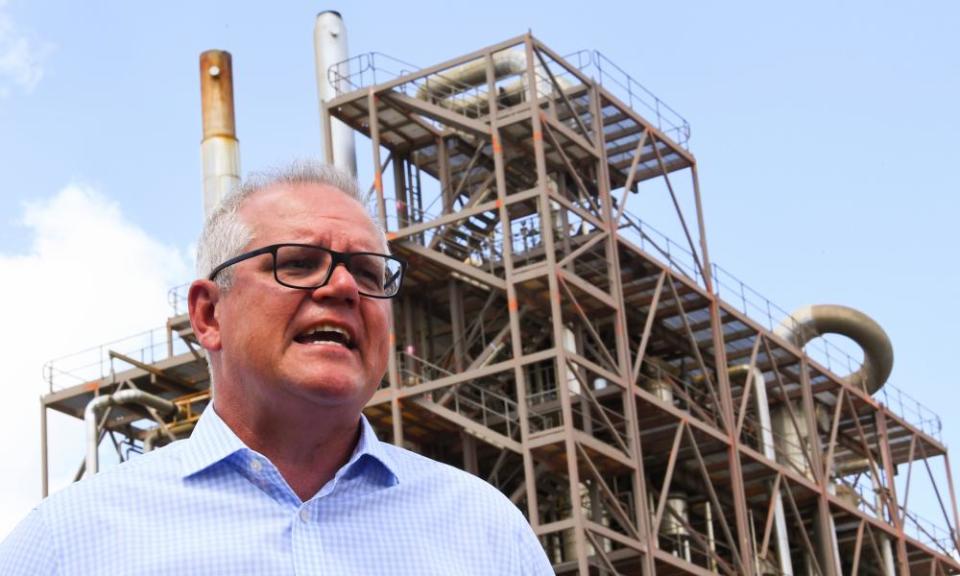New measures to support refinery industry could cost Australian taxpayers $2bn over a decade

Taxpayers could be on the hook for up to $2bn over a decade due to a fuel security payment committed by the federal government to protect Australia’s refining industry.
The Morrison government is seeking to ensure fuel security and save 1,250 jobs at the Viva refinery in Geelong and Ampol’s Lytton refinery in Brisbane.
Tuesday’s budget revealed the government would introduce a production payment to support domestic refiners and direct support for the refiners to upgrade their infrastructure, but the cost of both was “not for publication” due to “commercial sensitivities”.
Related: Australia’s fossil fuel industry admits it is harder to finance projects as climate concerns grow
On Monday Scott Morrison revealed the latter will cost up to $302m for infrastructure upgrades to help refiners bring forward the production of better-quality fuels from 2027 to 2024.
The variable fuel security service payment will see refineries paid a maximum of 1.8 cents per litre when the margin drops to $7.30 a barrel.
The payment will drop to 0 cents when the margin hits $10.20 a barrel, meaning refineries are only supported in downtimes and will not receive government support when they are performing well.
The payment has been costed at up to $2.05bn to 2030 on a worst-case scenario.
The government will introduce the fuel security bill to parliament in coming weeks so the fuel security payment can begin on 1 July 2021. The bill will also set the key parameters for the minimum stockholding obligation that will commence in 2022.
The government will also accelerate the industry-wide review of the petrol and diesel standard to 2022, including a consideration of aromatics levels. This aims to create a Euro-6 equivalent petrol and diesel standard that are appropriate for Australia.
Morrison said “this is a key plank of our plan to secure Australia’s recovery from the pandemic, and to prepare against any future crises”.
“Shoring up our fuel security means protecting 1,250 jobs, giving certainty to key industries, and bolstering our national security.”

 Yahoo Finance
Yahoo Finance 